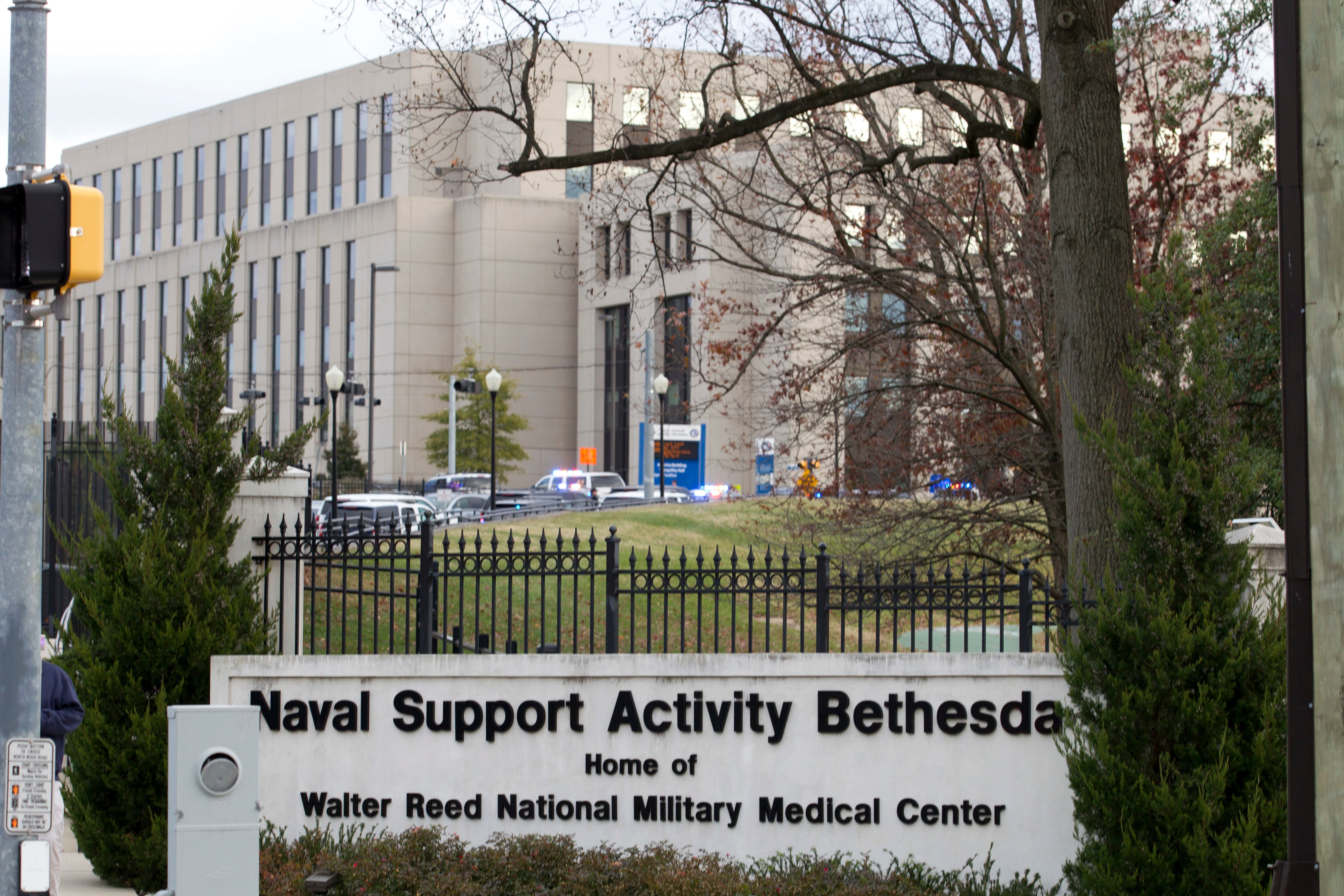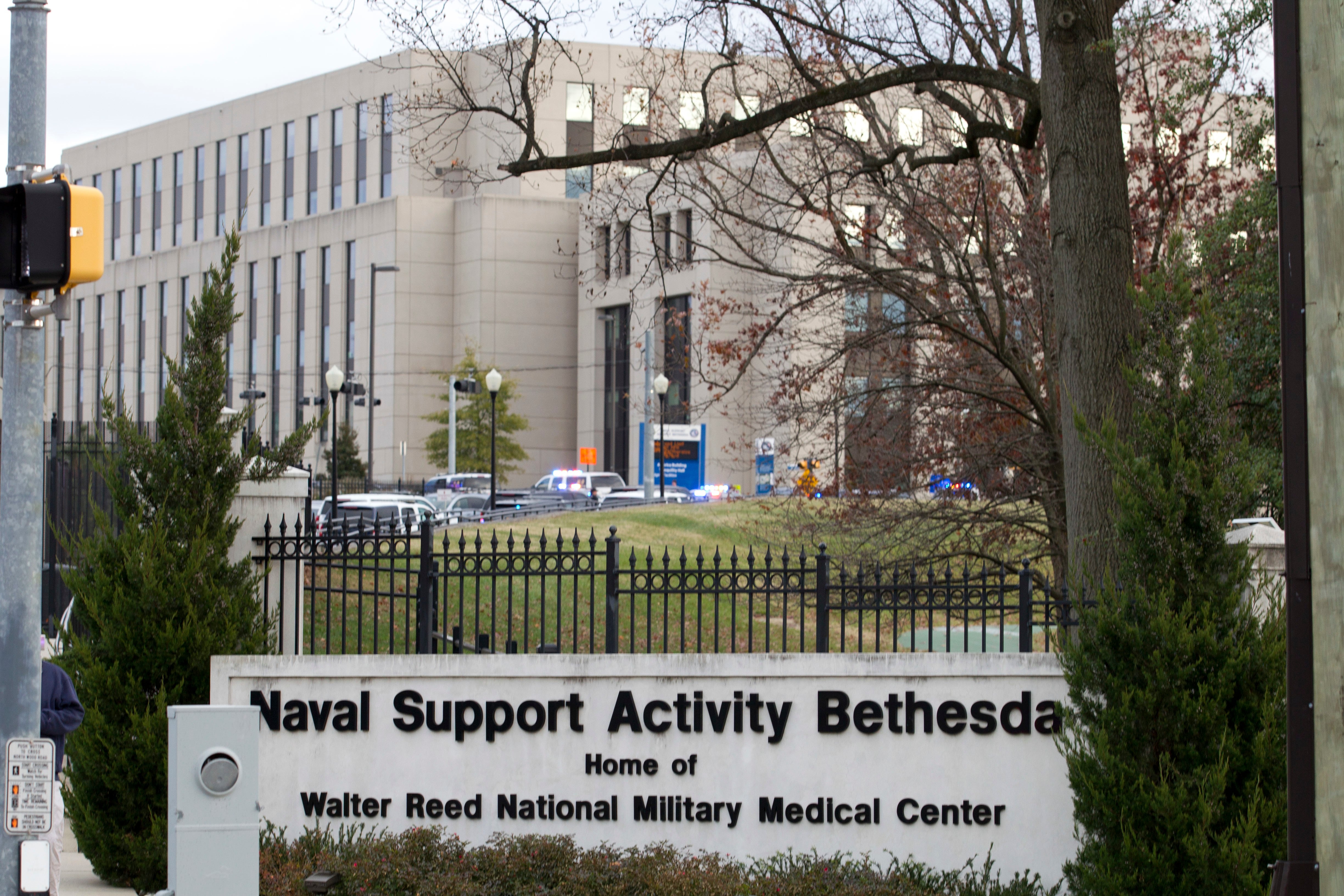The House Armed Services Committee has requested more information from the Navy regarding substandard living conditions at barracks aboard the Maryland base that houses the Walter Reed National Military Medical Center and lawmakers are considering holding hearings on the issue, according to a congressional source.
The move by lawmakers follows a Navy Times investigation Friday which for the first time exposed how hundreds of junior service members have for years lived without hot water and other basic creature comforts aboard Naval Support Activity Bethesda.
A day after the Navy Times report published, Navy leadership moved more than 350 troops out of hot water-less rooms in Comfort and Sanctuary halls and into hotels until the problems are fixed.
Many of those troops are Navy corpsmen, medical personnel who work at the sprawling Walter Reed medical complex.
Rear Adm. Michael Steffen, the commandant of Naval District Washington, made a “surprise visit” to the barracks on Saturday to listen to the concerns of residents there.
RELATED

Steffen’s spokesman, Edward Zeigler, said Wednesday that, “at this time, RDML Steffen has not been invited to participate in any hearings,” but that Steffen will be briefing congressional staffers on the issues this Friday.
If lawmakers do hold hearings about the conditions at Sanctuary and Comfort halls, they would likely have several avenues of inquiry to ask Navy brass about.
In addition to years with no hot water, troops in those barracks have also grappled with a lack of air conditioning during the muggy mid-Atlantic summer months and broken locks on their room doors, which has raised safety concerns among some women assigned to the coed barracks.
“I already work super-long hours in a high-demand clinic with a huge patient volume,” one affected Navy corpsman told Navy Times last week. “We’ve been short-staffed for a long time and there’s no telework for us. It sucks to have to grit your teeth through a cold shower and go back to the grind.”
Other corpsmen raised concerns about being able to get properly clean without hot showers during the pandemic.
“I’m not new to living standards in the military,” one corpsman said. “I’m a military kid and I lived in base housing, but this is just ridiculous. We’re not in the field and we’re not on a ship. There’s no viable reason as to why we should be forced to live without the basic qualities of life.”
Some of the hot water issues have been on the Navy’s radar for years, Capt. Scott Switzer, NSA Bethesda’s commanding officer, told a town hall meeting on Thursday.
The issues there precede Switzer, who took command of the base in May 2021.
Switzer’s spokesman, Jeremy Brooks, told Navy Times Wednesday that his boss has not been contacted about testifying before Congress.
Left unsaid at the townhall was why these issues were allowed to fester for so long.
Comfort Hall was built in 1986, while Sanctuary Hall “opened to occupants” in 2014, according to base spokesman Jeremy Brooks.
RELATED

The Navy has been trying to fix Sanctuary Hall’s hot water issues since 2015, Switzer said at the town hall, meaning that an untold number of mostly lower-ranking troops have likely suffered through a lack of hot water there.
The work required for that building involves replacing a temperature control valve and those repairs are expected to be completed in a few weeks. New parts for the temperature control valve have also been ordered, the Navy said in a statement following Navy Times’ investigation.
But two days before, during the town hall, Switzer said he wasn’t sure if the valve needed to solve Sanctuary’s problems was in stock, according to a recording of the event obtained by Navy Times.
One sailor said at the townhall that they were given similar excuses in recent years.
“We kind of got the runaround and we were told that a part was ordered, we’re waiting on a part,” the sailor said of previous townhalls. “So, it just feels like we’re kind of gaslighted in a way. We got the part coming, then it’s a year later.”
Comfort Hall is decades-old and was built without an upper hot water loop, meaning the third and fourth floors don’t have hot water.
Fixing that will require crews to cut all water to the building for five days, Switzer said at the townhall.
“That system, when it was designed, it wasn’t built the way it was designed,” Switzer said. “We’re kind of trying to fix it right now.”
Before publication of the Navy Times investigation, Switzer told troops at the townhall that the base was figuring out how to help junior troops live through nearly a week without any water in their barracks.
“Is there a plan of action for how the 300 or so corpsmen are supposed to live with this?” one attendee asked.
“We’re trying to formulate a decent way to make this at least livable,” Switzer replied. “I’m not going to say good, because it’s not going to be good. But we’re going to do the best we can to make it a less-odious time.”
Correction: an earlier version of this article misstated the year Comfort Hall was built due to erroneous information provided by the Navy. It was built in 1986.
Geoff is the managing editor of Military Times, but he still loves writing stories. He covered Iraq and Afghanistan extensively and was a reporter at the Chicago Tribune. He welcomes any and all kinds of tips at geoffz@militarytimes.com.
Leo covers Congress, Veterans Affairs and the White House for Military Times. He has covered Washington, D.C. since 2004, focusing on military personnel and veterans policies. His work has earned numerous honors, including a 2009 Polk award, a 2010 National Headliner Award, the IAVA Leadership in Journalism award and the VFW News Media award.





